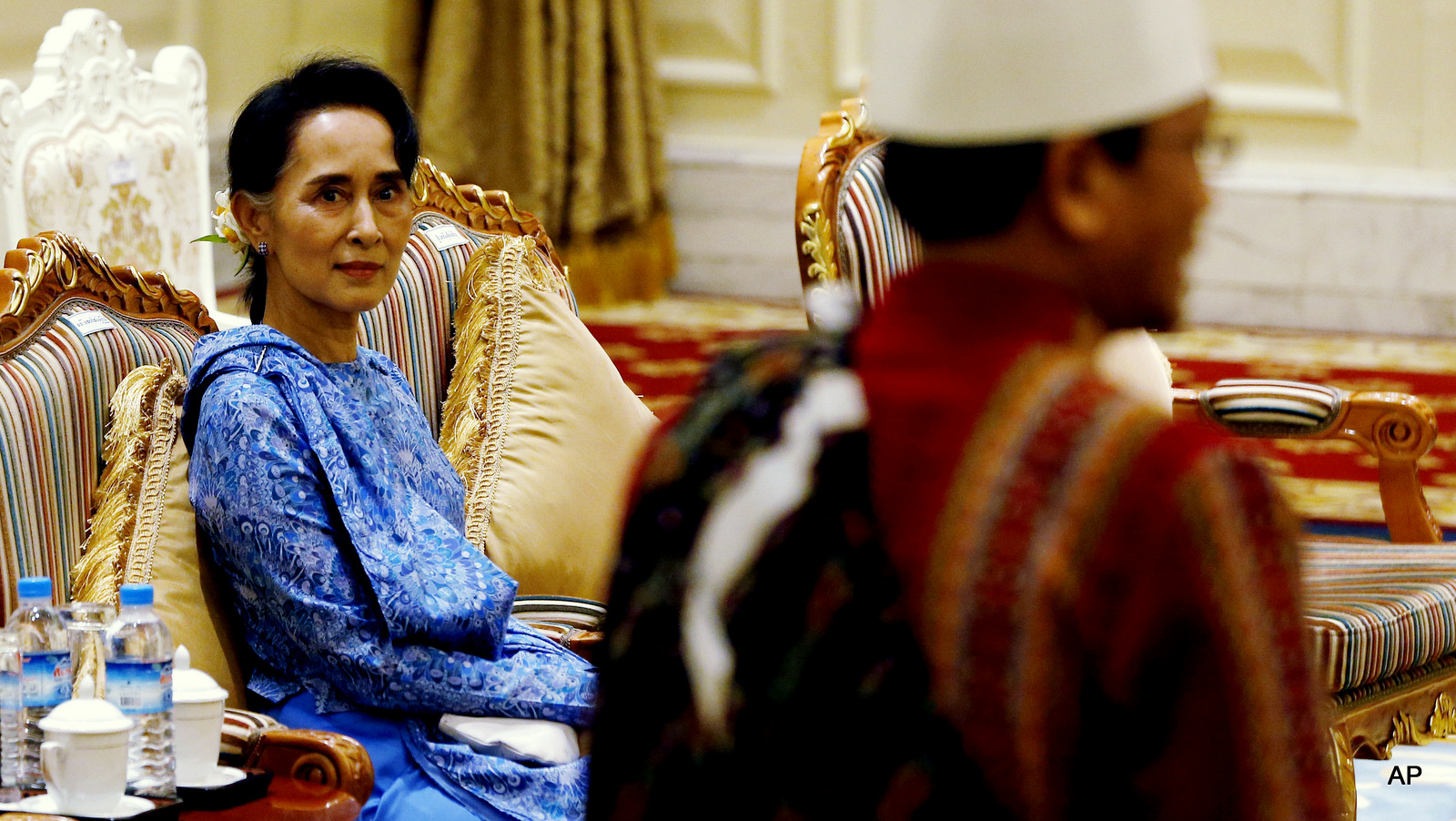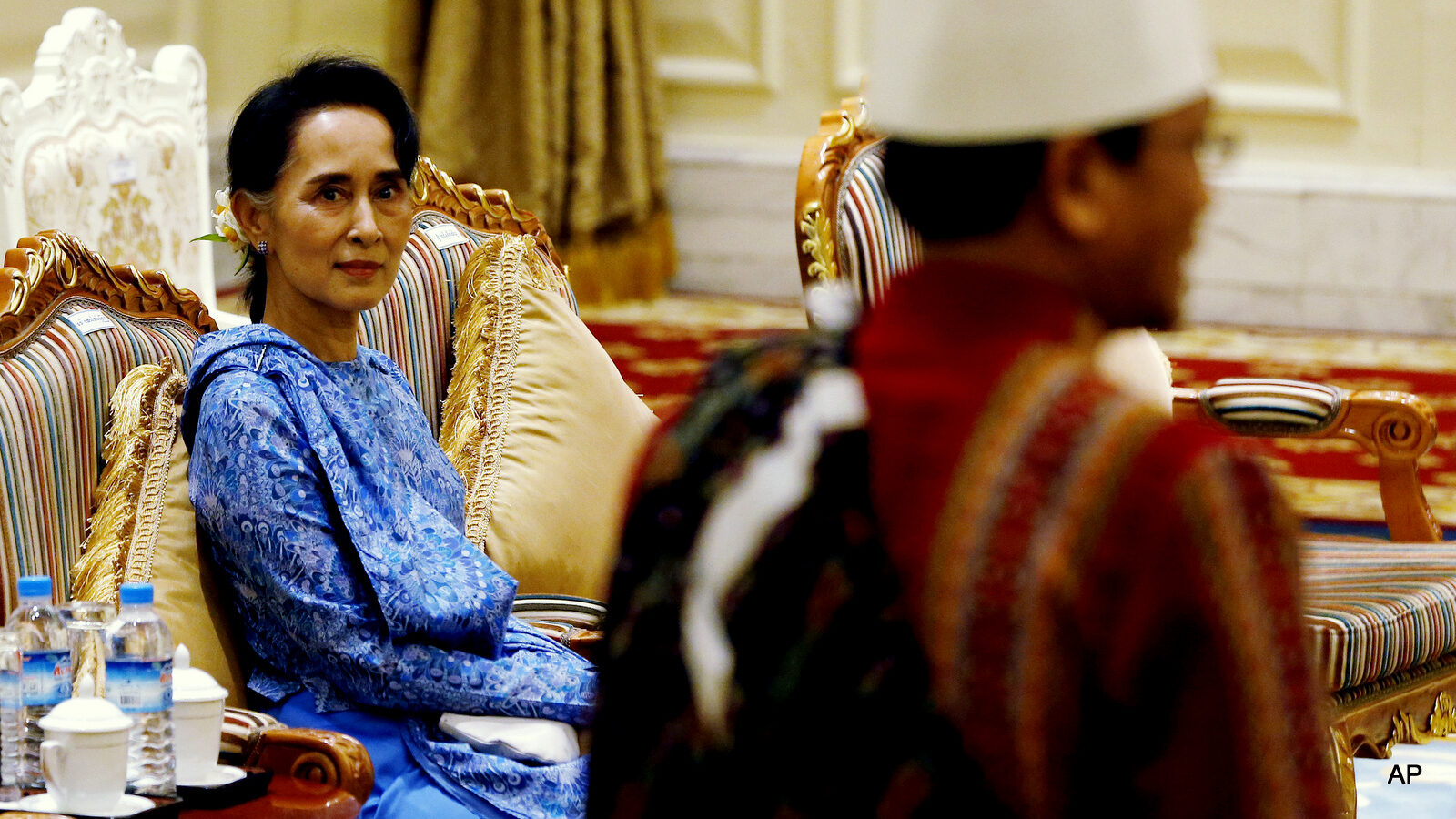
Myanmar’s “de facto leader” Aung San Suu Kyi recently warned the United States to not refer to the Rohingya ethnic minority as “Rohingya,” in an attempt to deny them the dignity and human rights she and her party posed as renowned defenders of.
For those critically examining and long-following political developments in Myanmar and their wider geopolitical implications for Southeast Asia, Asia, and the world, Aung San Suu Kyi and her “National League for Democracy” (NLD) political front, along with a vast array of Western-funded NGOs’ turning against Myanmar’s Rohingya population after predicating their ascent into power upon “human rights” and “democracy” is no surprise.
For those receiving their news from establishment media networks in the US and Europe, Suu Kyi refusing to recognize the Rohingya, many of whom have lived in Myanmar for generations, may seem puzzling, even disappointing, or more disturbingly, an opportunity for excuses.
However, it was warned before recent elections – hailed by the Western media as “historic” – that not only would Suu Kyi fail to deliver on the utopian promises her party represented, and not only would her coming to power begin a process of recolonization by the British Empire’s successors in London and on Wall Street, but that it would also herald increasing persecution, violence, and eventually genocide against the Rohingya minority already long-targeted by Suu Kyi’s staunchest supporters.
As early as March 2015 in a previous article titled, “Myanmar: Meet Aung San Suu Kyi’s Saffron Mobs,” the true nature of Suu Kyi’s support base was revealed with the “saffron” robed monks often the centerpiece of Suu Kyi and the NLD’s street demonstrations exposed as ultra-violent, genocidal, and very much Western-backed.
Not only did this backing including funding and organizational support, but it also included substantial public relations efforts across the Western media to cover up the true nature of their actions and motivations.
More recently, as Suu Kyi assumed power by proxy through a hand-picked “president” Suu Kyi openly pledged to “rule above,” it was warned that the stalwart support of Suu Kyi’s “saffron” mobs would be rewarded by giving them an increasingly free hand to target and eliminate Myanmar’s Rohingya people.
In the article titled, “Myanmar’s New Dictator: Aung San Suu Kyi,” it was explicitly stated that:
With the diminished role of the military in government and Suu Kyi’s self-serving and selective adherence to the rule of law, her supporters likely anticipate a free hand in actualizing their genocidal ambitions versus not only the Rohingya, but all of their political and sociocultural enemies.
Not only is the prospect of wider violence a concern for the people of Myanmar, but the rise of political order in Myanmar unwilling or incapable of stemming genocide spells chaos for its neighbors, particularly Thailand.
Suu Kyi Warns Against Recognizing Rohingya
Considering this, it should hardly come as a surprise then, when the New York Times reported recently in their article, “Aung San Suu Kyi Asks U.S. Not to Refer to ‘Rohingya’,” that:
Daw Aung San Suu Kyi, the leader of Myanmar’s first democratically elected government since 1962, embraced that view last week when she advised the United States ambassador against using the term “Rohingya” to describe the persecuted Muslim population that has lived in Myanmar for generations.
Her government, like the previous military-led one, will not call the Rohingya people by that name because it does not recognize them as citizens, said her spokesman, U Kyaw Zay Ya, a Foreign Ministry official.
New York Times’ screed, however, is predictably inaccurate. The “previous military-led one,” had in fact, attempted to grant the Rohingya additional rights, including the right to vote, and only backed down as a matter of concession when confronted by Suu Kyi’s violent street mobs.
Australia’s ABC News would report in a February 2015 article titled, “Myanmar scraps temporary ID cards amid protests targeting ethnic minorities without citizenship,” that (emphasis added):
Myanmar’s government says identity cards for people without full citizenship, including Muslim Rohingya, will expire within weeks.
The scrapping of ID cards snatches away voting rights handed to them just a day earlier (Tuesday), after Myanmar nationalists protested against the move.
The Rohingya, along with hundreds of thousands of people in mainly ethnic minority border areas, who hold the documents ostensibly as part of a process of applying for citizenship, will see their ID cards expire at the end of March, according to a statement from the office of president Thein Sein.
Those “nationalists” who protested the move to grant the Rohingya voting rights were Suu Kyi’s “saffron” street front as revealed in another early 2015 ABC News article titled, “Myanmar monk who called UN envoy a whore ‘could hurt Buddhism’.” It reported that:
A Myanmar Buddhist monk who called a UN human rights envoy a “whore” has violated his monastic code and could damage his religion, another prominent monk says, but he is unlikely to face censure.
Ashin Wirathu denounced Yanghee Lee, the UN special rapporteur on human rights in Myanmar, in a speech in Yangon on Friday, after she questioned draft laws that critics said discriminate against women and non-Buddhists.
Wirathu, also known as the “Buddhist Bin Laden,” led Aung San Suu Kyi’s “Saffron Revolution” in 2007 and his followers regularly fill the ranks of street mobs organized in support of her NLD party to this day.
The US is Coddling a Racist Dictator
As the US condemns the government in Damascus for using armed force against torrents of foreign-backed terrorists spilling over its borders – essentially an invasion – it is silent, even apologetic in regards to Suu Kyi’s serial and increasingly egregious offenses against ethnic minorities in Myanmar. The US is also silent in regards to Suu Kyi’s illegal seizure of power, having openly declared herself “above” the nation’s president, and with the New York Times itself describing her as “the country’s de facto leader.”The explanation for this is well-documented and straight forward. Suu Kyi, her political front, and the numerous NGOs helping to underpin both, are the financial, political, and geostrategic creations and perpetuations of the US and British governments, a decades-long project of undermining and overthrowing Myanmar’s political order, and replacing it with a client regime more “friendly” to special interests in London and on Wall Street.Notions of “democracy” and “human rights” are now clearly facades this agenda was couched behind, cynically used against the previous military-led government to protect the rise of the West’s proxies, and then conveniently discarded once those proxies came to power.
Documentation and reporting on violations of human rights by Suu Kyi’s political front and its various supporters across the country will continue, quietly, and only be sensationalized if and when Suu Kyi and the NLD misstep regarding Western interests in the Southeast Asian state.
Currently, anti-Chinese protests are erupting at a mine operated in cooperation with Chinese business interests. Suu Kyi’s failure to close down the mine and give the US-funded protests the final word in the dispute, for example, would be cause to “leak” information regarding the true nature of Suu Kyi’s rise to power and the genocidal aspirations of her political front.
The predicted disillusionment of Suu Kyi’s supporters worldwide will continue – those who genuinely uphold the principles of defending human rights and representative governance cannot reconcile the fact that Suu Kyi and her NLD clearly represent neither.
For Myanmar’s neighbors, preparations for wider persecution of the Ronhingya should be made. As the violence and injustice escalate, refugees will increase, placing a burden on neighboring states, particularly Thailand. It is important for these states to focus on the cause rather than the consequences of this predictable tragedy, and focus on the foreign-funded, hypocritical nature of the NLD regime. Failure to confront and confound Western aspirations in Myanmar will invite similar scenarios to unfold elsewhere across Southeast Asia.


